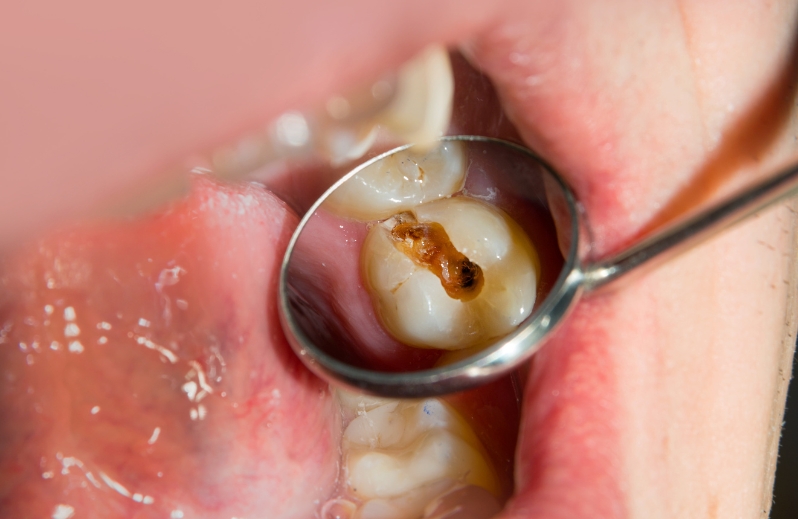1101-116 Grande Blvd, Cochrane, Alberta, T4C 2G4
Why Quick Action in Emergency Dentistry Can Save Your Teeth

Dental emergencies can strike without warning—whether you’re biting into a piece of food, playing sports, or simply going about your day. In these stressful moments, quick action is essential to protect your teeth and avoid long-term damage. Imagine dealing with a sudden toothache or having a tooth knocked out; time becomes your greatest ally. The faster you act, the better your chances of saving your smile. Knowing what to do in these situations could mean the difference between keeping or losing a tooth. Read on to discover why swift response in dental emergencies can truly save your teeth.
The Consequences of Delay in Dental Emergencies
Time is a critical factor in any dental emergency. Ignoring or delaying treatment can cause irreversible damage, leading to tooth loss, infections, or even more serious health issues. Many dental problems progress quickly. For example, a chipped or cracked tooth may seem manageable, but if left untreated, it can lead to infection, tooth decay, or abscesses. These consequences not only compromise your oral health but may also require more invasive and expensive treatments.
Additionally, in cases where a tooth gets knocked out, you have a short window of time, usually around 30 minutes to an hour, to replant the tooth successfully. Quick intervention by an emergency dentist could be the difference between keeping or losing a tooth.
Common Types of Dental Emergencies That Require Immediate Attention
Various dental issues require urgent care. Knowing what these are and why they need immediate attention is essential in ensuring your smile remains intact. Let’s explore some of the most common dental emergencies:
1. Knocked-Out Tooth
A knocked-out tooth is one of the most urgent dental emergencies. If handled properly, it is possible to save the tooth. The tooth must be placed in a container of milk or saliva and brought to a dentist immediately for reimplantation. Quick action increases the chances of successfully saving the tooth.
2. Severe Toothache
Toothaches are often a sign of deeper issues such as tooth decay, infections, or abscesses. Severe pain can indicate a dental abscess, which is an infection around the root of the tooth or in the gums. Left untreated, it can spread, causing severe pain, fever, and other health complications. Immediate dental care can relieve pain and stop the infection from worsening.
3. Cracked or Broken Teeth
A cracked or broken tooth can happen due to trauma, biting down on something hard, or untreated cavities. The severity of the crack will determine the treatment. A minor chip may only need smoothing, but a deep crack could affect the root or nerve of the tooth, leading to pain and infection if ignored. Acting quickly can save the tooth from more extensive damage.
4. Lost Dental Filling or Crown
Losing a filling or crown leaves the affected tooth exposed to further damage and infection. The tooth could be more vulnerable to decay or even breakage. Immediate dental intervention can restore the tooth’s structure, preventing future complications.
5. Infections and Abscesses
Oral infections or abscesses are serious dental emergencies that require immediate attention. They can cause intense pain, swelling, fever, and discomfort. If not treated quickly, the infection can spread to other parts of the body, becoming life-threatening in extreme cases.
Why Timing is Everything in Dental Emergencies
Dental emergencies, by their very nature, require urgent action. Unlike some medical conditions that can improve over time, dental issues often get worse. Here’s why taking quick action is essential:
1. Prevent Further Damage
A minor dental issue can turn into a more severe problem if ignored. For example, what starts as a small cavity could develop into an abscess, or a slightly cracked tooth could eventually fracture completely. Addressing the problem early minimizes the risk of more severe damage.
2. Save Your Teeth
Immediate treatment for dental trauma can often save teeth that might otherwise be lost. A knocked-out tooth, for instance, has the best chance of being saved if treated within the first hour after the accident. Timely intervention gives your dentist the opportunity to restore your teeth before the damage becomes irreparable.
3. Reduce Pain and Discomfort
Pain is your body’s way of signaling that something is wrong. Dental pain can be excruciating and may worsen if left untreated. Quick action helps alleviate discomfort and prevents the issue from developing into something more severe.
Long-Term Benefits of Quick Action in Dental Emergencies
Beyond the immediate relief and potential to save teeth, there are long-term benefits to seeking quick dental care in an emergency:
1. Cost-Effective Solutions
Dealing with dental emergencies swiftly can help avoid more complex, costly treatments down the road. For instance, treating a small crack or filling a cavity early on is much less expensive than a root canal or extraction that might be necessary later.
2. Better Oral Health Outcomes
Responding quickly to a dental emergency ensures that your overall oral health remains intact. Unchecked issues like infections, abscesses, or severe damage to teeth can lead to gum disease or even bone loss over time. Acting fast not only saves the affected tooth but also helps maintain the health of surrounding teeth and gums.
3. Protect Your Overall Health
Untreated dental problems can lead to infections that may spread to other parts of the body, causing serious health concerns. Conditions like bacterial endocarditis (infection of the heart lining) or respiratory infections can result from poor oral health. Swift action in dental emergencies helps protect your overall health, not just your teeth.
How to Be Prepared for Dental Emergencies
Knowing what to do in a dental emergency can make a significant difference in the outcome. Here are some tips to help you be prepared:
1. Have Your Dentist’s Contact Information Handy
In a dental emergency, time is critical. Ensure you have the contact information for your dentist easily accessible, whether on your phone or posted at home. This will save valuable time when you need urgent care.
2. Create a Dental Emergency Kit
Having a dental emergency kit can help you take immediate action before reaching the dentist. A small container of milk (or a saline solution), gauze, a cold pack, and over-the-counter pain medication can help manage the situation until professional care is available.
3. Know What to Do for Common Dental Emergencies
Familiarize yourself with basic dental first aid. For example, if a tooth gets knocked out, knowing to keep it moist in milk or saliva can increase the chances of saving the tooth. Similarly, applying a cold compress can reduce swelling and discomfort until you reach a dentist.
How Emergency Dentistry Can Save Your Smile
Emergency dental care is more than just a quick fix—it’s a vital service that ensures the long-term health of your teeth and gums. Whether you’re dealing with trauma, pain, or infection, a skilled emergency dentist can assess the situation and provide the necessary treatment to restore your oral health. In Cochrane, immediate care from a professional can mean the difference between saving or losing a tooth. Quick action prevents further damage and sets you up for better outcomes down the line.
When faced with a dental emergency, remember that every second counts. By acting swiftly and seeking professional help, you’re not just addressing the problem at hand—you’re preserving your smile for years to come. If you’re in the Cochrane area, don’t hesitate to seek help from a professional who can offer expert care during these critical moments.



